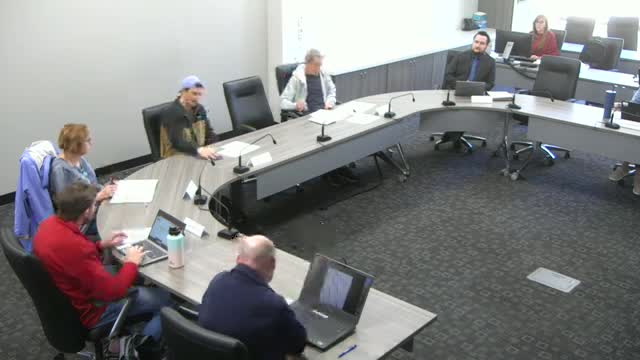Denton staff outlines electric lawn-equipment rebate pilot; board favors largest rebate option and including corded models
Get AI-powered insights, summaries, and transcripts
Subscribe
Summary
City staff presented details of a proposed electric lawn-equipment incentive pilot for Denton residents at the Feb. 28 sustainability meeting, describing rebate levels, eligibility rules and options for proof of disposal of gasoline-powered equipment.
City staff presented details of a proposed electric lawn-equipment incentive pilot for Denton residents at the Feb. 28 sustainability meeting, describing rebate levels, eligibility rules and options for proof of disposal of gasoline-powered equipment.
The city’s sustainability manager said the pilot would be available to all Denton residents and would not be limited to Denton Municipal Electric customers. Applicants would submit a detailed receipt and type of equipment within 90 days of purchase; staff proposed an additional $50 incentive for proof that a gasoline mower was turned in or picked up through the city’s bulky-item program. The manager said proposed rebate structures included a high-tier option with a $500 per-household maximum and up to $300 for a mower with trade-in, a mid-tier option with a $300 maximum, and a flat-payment option with lower per-item payments.
Board members raised questions about whether corded electric equipment should be eligible. Dr. Meyer and another member urged the inclusion of corded models, noting that corded equipment still reduces emissions compared with gasoline engines. One board member who reviewed large-box retailer pricing said the price difference between electric and gasoline push mowers was about $80 on average and that handheld electric trimmers were often cheaper than their gasoline equivalents; that member recommended weighting rebates more heavily where the price gap favors electric equipment.
Members asked about implementation details for the trade-in option; staff said the city’s bulk curbside pickup could provide proof of disposal and that items must be drained of fuel before pickup. When asked about program scale, staff said the pilot has $50,000 earmarked. Several members said they preferred the largest rebate structure (staff’s Option 1) and supported including corded electric equipment and a marketing push using the city’s existing channels.
No formal vote to adopt a program was recorded during the discussion; board members provided direction to staff to proceed with program design incorporating the feedback discussed, including considering corded equipment, the rebate structure similar to Option 1, and trade-in proof via bulky-item pickup.
Board members also requested that staff return with estimated emissions reductions and other co-benefits for the proposed program.
Staff noted that disposal and battery recycling logistics would need to be clarified as part of implementation.
